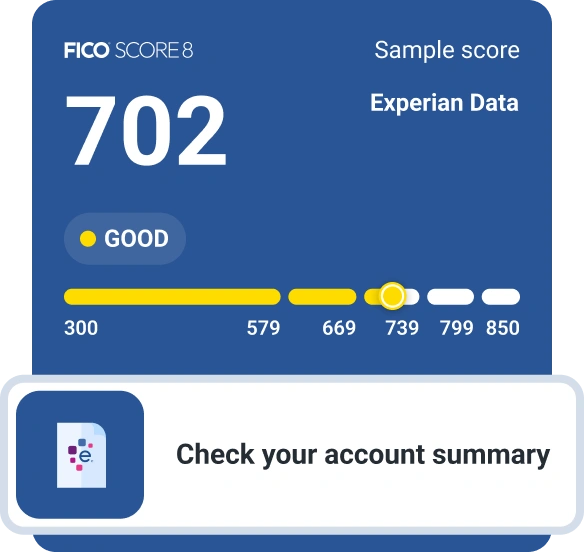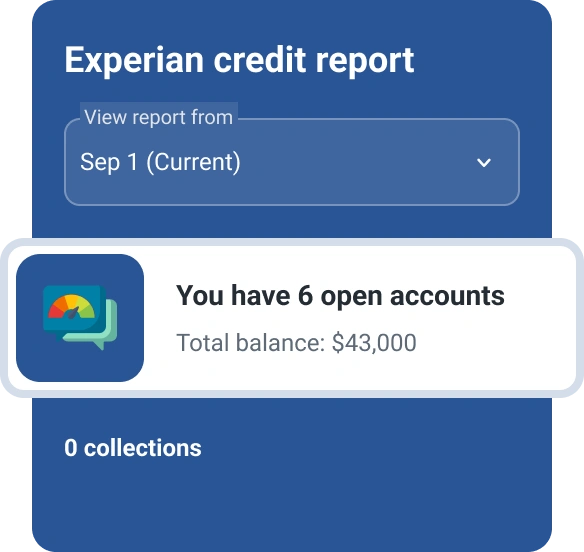Why Did My Credit Score Improve?

A credit score increase can be a welcome surprise, but it may have you wondering why. Your credit score may go up for several reasons, and they all have to do with changes to the information on your credit report. Common reasons for a score increase include: a reduction in credit card debt, the removal of old negative marks from your credit report and on-time payments being added to your report.
The situations that lead to score increases correspond to the factors that determine your credit score. For instance, the removal of late or missed payments from your credit report after a certain period can lead to score growth because payment history is the single most significant factor in your score.
Read on to learn more about the reasons why your credit score might have gone up.
Your Credit Utilization Ratio Decreased
Your credit utilization ratio is the amount of revolving credit you're currently using compared with your total credit limit. Scoring models calculate credit utilization based on your individual credit card account balances as well as your total utilization across all credit card accounts. Credit utilization is a major component of the "amounts owed" factor, which makes up 30% of your FICO® ScoreΘ.
When you pay off a credit card balance, your utilization on that card drops to zero—and your overall utilization drops too. That generally has a positive effect on scores (though showing you can manage credit cards on a regular basis means that a low overall ratio is better than zero). Since account information is updated with the credit bureaus after the end of a billing cycle, you may not see a score change until 30 to 45 days have passed after reducing your credit utilization.
Keeping your credit utilization below 30% of your available credit can help you improve your scores, and the lower, the better. Paying down your balances is the most straightforward way to reduce your credit utilization, but you can also request that a credit card issuer increase your credit limit. An increased limit can help you reduce your utilization even if you maintain the same credit usage. However, you should resist the temptation to use that increased limit to add to your debt. This could leave your utilization ratio worse off than before and result in more interest charges. After requesting a credit limit increase, you might see a brief drop in your score if the issuer had to make a hard inquiry in order to review your credit report as part of its decision-making process.
Negative Information Fell Off Your Credit Report
Negative marks on your credit report include late payments, bankruptcy, collections, foreclosure and student loan default. Each of these stay on your report for seven years, with the exception of Chapter 7 bankruptcy, which stays on your credit report for 10 years.
Even if you end up paying off an account in full, past late payments on that account will remain on your credit report until that seven years is up. When a negative mark does eventually come off your report, your credit score will likely increase. It's not possible to pay a company to remove a negative item from your report early, despite the promises some services make.
Rehabilitating a defaulted student loan through the federal government's official program, though, will remove the default notation from your report. Previous late payments will stay for seven years.
You Paid Down Existing Debt
Paying down your revolving credit, which is a type of debt that includes credit cards and other lines of credit, could potentially result in a quick credit score increase.
On the other hand, paying off installment debt such as personal loans, student loans and mortgages, generally won't affect your score as positively right away. That's mostly because installment accounts aren't factored into your credit utilization. Another reason is that paid-off accounts will be listed as closed, and closed accounts aren't weighted as heavily in score calculations as open accounts. Paying off debt in general is a smart move, but reducing loan balances won't necessarily result in an immediate credit score increase.
The news is also mixed when it comes to paying off or settling accounts in collections, meaning they're past due and have been sold to a debt collector. Newer credit scoring models won't factor paid-off collections accounts in your score, which means that particular negative mark won't negatively affect it.
But older scoring models, including those used for mortgage lending, will still consider the derogatory mark of your collections account in your credit score, which means paying off or settling the account won't increase it.
You Diversified Your Credit Mix
A less significant, but still important, element in your credit score is credit mix. This refers to the types of credit accounts you currently hold, which generally come in two types: installment credit and revolving credit.
Credit mix accounts for 10% of your FICO® Score. It can contribute to a higher score if you add a new type of credit to your report, such as a mortgage if you only had credit cards or a credit card if you only had student loans—as long as you continue to manage all your debts responsibly.
Diversifying your credit mix often is a result of the normal course of borrowing and adding accounts to your credit portfolio. It's not a wise move to take on more debt accounts in an attempt to increase your credit mix. The effect you'll see on your credit is likely to be very small, and the added debt can affect your personal finances.
A Hard Inquiry Fell Off Your Credit Report
When you apply for a loan, line of credit or credit card, a lender or credit card issuer will pull your credit report to check your payment history, other debt obligations and experience managing credit.
This is called a hard inquiry, and a record of the credit check will make its way onto your credit report. That happens so that credit scoring models, as well as other lenders and credit card issuers, can see how often you've applied for credit in the past. If you have many applications to a variety of credit types, you may appear to be a bigger lending risk. Credit scoring models do recognize the importance of rate shopping for loans like mortgages and auto loans, however, and will count similar loan applications as one inquiry if they're submitted over a period of a couple weeks.
Hard credit inquiries stay on your credit report for up to two years. In most cases, they'll only negatively affect your credit for a year or less. A single inquiry's effect on your credit will be slight, if it's noticeable at all, and can be blunted by positive payment history and other responsible credit behavior. If your score increased recently, it might be because an old hard inquiry is no longer being factored into your score.
You Are Managing Your Bills and Credit
Score improvements can also be a result of ongoing responsible credit management, like paying your bills on time and paying off your credit card balance in full each month. These two habits alone will ensure that payment history and credit utilization, the two most important scoring factors, always contribute positively to your score.
Length of credit history also accounts for 15% of your FICO® Score. It's generally in your best interest to keep credit card accounts open, even if you're no longer using them, since past positive payment history will continue to benefit you. (You may decide to cancel a credit card, though, if it carries a pricey annual fee or you're tempted to use it to overspend.) A prolonged period of responsible credit behavior will lead to top-notch scores over time.
Keep Up With Positive Credit Habits
Watching your credit score increase is a cause for celebration. It's also a driving force to keep your score strong and even improve it further. As always, making sure you're paying bills on time should be your top priority, so consider setting up automatic payments to your loans and credit cards from a bank account each month.
Other positive credit habits include limiting new credit applications to only what you need and checking your credit report and score regularly. That way, you can notice right away if your score drops or unusual activity appears on your report, which could be a sign of fraud or the result of a creditor reporting the status of your account incorrectly. Identifying and addressing any errors will help prevent them from causing an undue negative impact on your credit.
Using Credit Score Growth as Motivation
Take pride in an increased credit score, because it means that you're soundly managing the complexities of your credit file. It's not only good news today, but it presents a solid opportunity to learn more about how your credit score is calculated—and to put into practice habits that can bring you continued score growth in the future.
What makes a good credit score?
Learn what it takes to achieve a good credit score. Review your FICO® Score for free and see what’s helping and hurting your score.
Get your FICO® ScoreNo credit card required
About the author
Brianna McGurran is a freelance journalist and writing teacher based in Brooklyn, New York. Most recently, she was a staff writer and spokesperson at the personal finance website NerdWallet, where she wrote "Ask Brianna," a financial advice column syndicated by the Associated Press.
Read more from Brianna

